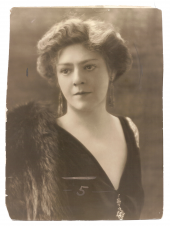'Re-Imagining Class': The 2013 Russian Film Symposium
How paltry our three American classes seem -- upper, lower, middle -- compared to Russia's hereditary nobility, gentry, military, bourgeoisie, clergy and serfs. Not a lot of upward (or even downward) mobility there. It was more caste than class system, before collapsing into "classless" under a dubious dictatorship of the proletariat.
Since the Communist show folded in 1991, people of the former Soviet Union have been reimagining class, and so is the 15th annual Russian Film Symposium at the University of Pittsburgh this week, under the ongoing inspired leadership of Vladimir Padunov, with a host of resident and visiting guest lecturers.
Post-Soviet Russia saw the phenomenal emergence of wealthy oligarchs, who grabbed up the state monopolies on oil, gas and mass media. A new middle class, slowly rising behind them, looks great in "mainstream" celluloid life -- typically enjoying spiffy modern apartments, driving cool cars, dining in posh restaurants.
Real middle-class Russian life looks different, as many of the 2013 films illustrate. In addition to daytime events on campus, this year's symposium features evening showings for the public, at Pittsburgh Filmmakers' Melwood Screening Room, of four extraordinary new Russian films.
It's terrifically Gogolesque!
The second story concerns the new Russian society's dependence on the Domino Theory of Bribery, and includes a president who rides a white horse and looks suspiciously like Vladimir Putin. The third tale involves a Pushkin librarian (Tamara Mironova) enlisted by the police for her psychic skills to locate a missing girl. "She has amazing powers," someone observes -- including the ability to spontaneously combust.
The final story is an erotic encounter between an impossibly sexy young woman (Lybov Novikova) and a much older man. It begins like Fellini's "8 1/2" in a traffic jam, moves quickly to wild sex, and then to his desire to talk as well as copulate. She can't. She doesn't even know what field hockey is ("How can they skate on grass?"). She thinks Trotsky was a writer. Her sum-total knowledge of World War II is that "German tanks almost reached the IKEA store."
Episodic anthology films often fail to hold interest or coalesce into a whole. This one, with its droll portraits and deft script, is sheer perfection.
******************************************************************************************
"Kokoko" (* * *), directed by Dunya Smirnova, reminds us of the late great Stella Adler's dictum, "In Ibsen, in Chekhov, in Tennessee Williams, when two classes are thrown together, you're going to have a war" -- or at least big trouble.
The big trouble here begins on a sleeper train between Moscow and St. Petersburg, when Lisa (Anna Mikhalkova), a lonely ethnographer, and Vika (Yana Troyanova), a lively punk party girl, have their purses stolen. Lisa offers Vika a place to stay until she gets some money and a new ID card. They hit it off over a night of vodka, complaining about the lousy men in their lives. Vika settles in for the duration, ignoring Lisa's fussy museum colleagues ("I think your tusk theory is correct") and their condescension.
Lisa's professional skills come in handy. She studies Vika like an exotic Aleut, with a fascination her intellectual friends do not share. The result is a wonderfully unpredictable rom-com that turns into a melodrama, centered on a friendship that starts and finishes in a police station. It's about class superiority and inferiority -- always and everywhere -- and the truism that "you become responsible for what you've tamed."
The acting is superb. The meaning of the strange title is so charming, I can't give it away.
**********************************************
"Rita's Last Fairy Tale" (* * and a half stars) by virtuoso writer-director Renata Litvinova is a bizarre kind of art-house chick flick with elements of a Harold Pinter play, combining fantasy with cynical reality for a uniquely jaundiced view of contemporary Russian society. It opens in a snowy forest with our introduction to the mysterious Tanya (played by the director herself), a high-fashion female incarnation of the Grim Reaper, in a black feathered headdress: "I think if Death respects someone, he should visit with them first and give them time to prepare," she says, while telling the story in flashbacks of terminally ill Rita (Olga Kuzina) -- a Russian Camille, come to a rundown sanitarium for treatment. Tanya will be red-eyed Rita's red-hot usher to the afterlife.
It's an otherworldly hospital, to be sure. Smoking is not just permitted, it's virtually required -- even in the operating rooms, where the surgeons answer cellphones beneath their surgical masks. There's also a love story, between Rita and her Armand-like lover Kolia, plus hallucinogenic dream sequences in a surreal cabaret. Ms. Litvinova is the personification of beautiful death. And she has an adorable pet ermine (brought to life from a stuffed one), who licks up the remnants in her champagne flute and qualifies for a new Oscar category of Best Performance by a Quadruped.
This is Slavic Ingmar Bergman, or a near-parody thereof -- simultaneously scary and funny. At one point, nurse Tanya gives a moaning morgue occupant a painkiller. The finale involves a statue of cosmonaut Yuri Gagarin coming to life. Ms. Litvinova is a fashion icon as well as a popular actress and director in Russia -- a live-wire female voice in the male-dominated entertainment industry. Her irony quotient may be a little too high, but her film is enchanting and visually dazzling -- if waaay too long and self-indulgent. Sit through it, if you dare, just for the sight of resurrected Rita's high-fashion cigarette chapeau.
******************************************************************************************
The crumbling ruins of the Soviet period still contain them all. Gromozeka is a character from a Soviet sci-fi children's book series about the adventures of a little girl from the future. Gromozeka tries to help her, but is always too late and arrives after she has already managed to defeat the bad guys herself. It's an apt pessimistic metaphor for the three friends here, who can't reconcile the bright rock'n' roll promises of their past with the present social confusion: "All you need is (in fact, a lot more than) love."
Class examined ... Class dismissed.






